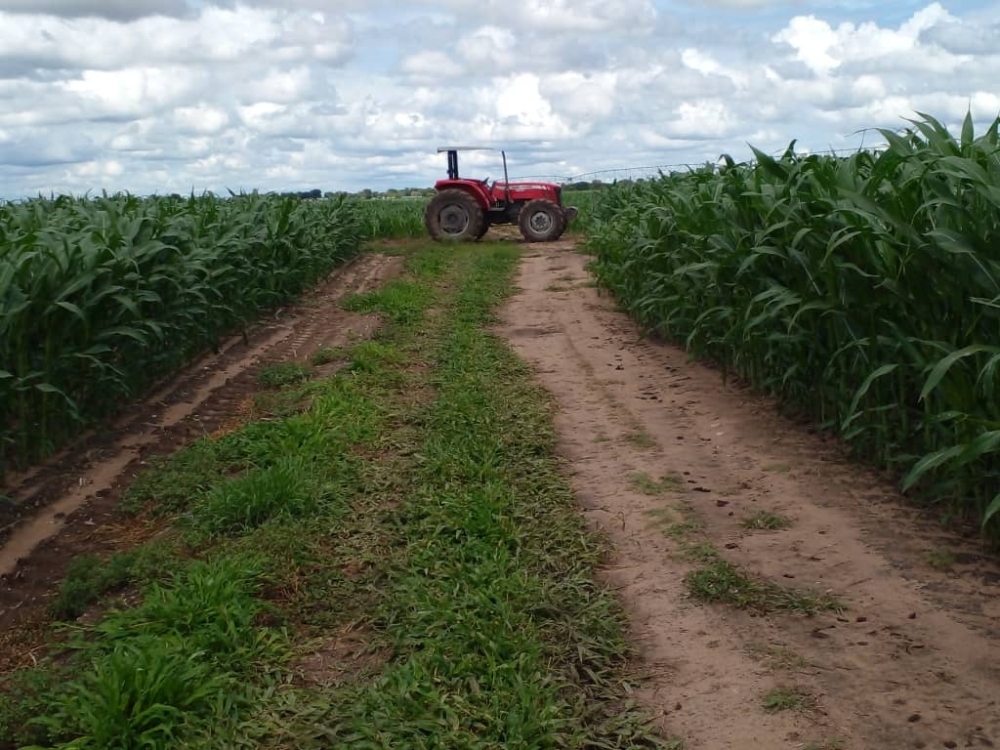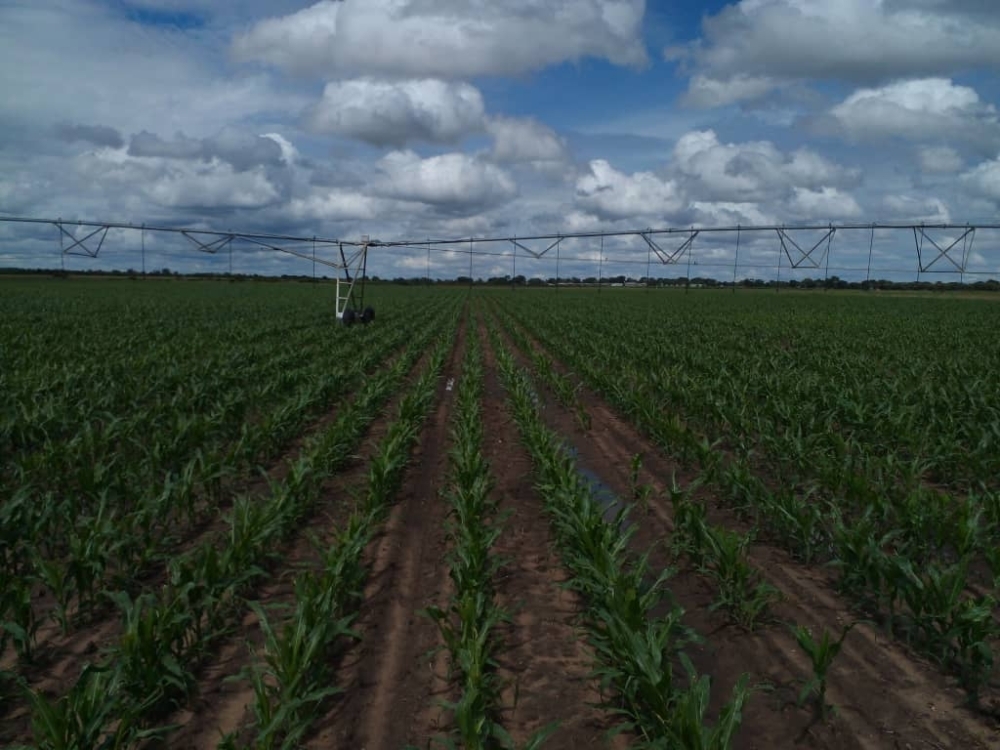NCS saves N$18m on food production
The Namibian Correctional Services (NCS) has managed to save over N$18 million during the past two financial years on the production of food at two correctional facilities in the north.
The Divundu Correctional Facility in Kavango East and the Evaristus Shikongo Correctional Facility in Oshikoto produced food items worth more than N$20.9 million for the 2022–2023 financial years.
According to the NCS, for the 2021/2022 and 2022/2023 it spent about N$10. 1 million in the production of maize, wheat, lucerne, Kow-Kandy and vegetables at the two facilities.
It has managed to produce food items worth more than N$28.5 million.
As a result, the NCS has been able to save about N$18.3 million over the past two financial years.
Success story
NCS commissioner general Raphael Tuhafeni Hamunyela visited the two correctional facilities last week with the purpose of assessing farm management activities and obtaining an overview of farm mechanisation in the correctional system.
The two facilities are part of the four farms that produce horticulture and agronomic crops as well as livestock for inmates’ rations in the NCS.
"I am very impressed with the production of the two facilities; they only communicate challenges and complaints to headquarters, but visiting the facilities, I have noticed the progress made in food production, and I am proud of that achievement," said Hamunyela.
He also highlighted some of the future plans to introduce poultry and pork production at Evaristus Shikongo Correctional Facility.
"We feel as the correctional service that it is also our responsibility to produce more wheat, maize, vegetable and animal fodder not just for offenders but to fight hunger and poverty amongst Namibians."
Multi-purpose production
Although not its key mandate, the NCS identified the need to introduce food production to impart agricultural skills for inmate rehabilitation and reintegration as well as to attain food self-sufficiency.
The NCS said that during this season, a total of 166.7 hectares, consisting of seven centre pivots, were planted with maize; 16 hectares under micro-irrigation were planted with vegetables, and 33 hectares were under fruit production at the Divundu Correctional Facility.
Meanwhile, Evaristus Shikongo Correctional Facility had 18.5 hectares planted with yellow maize, 1.5 hectares is under fruit production, and 0.5 hectares was planted with vegetables.
The facility also has 363 cattle, 242 goats, 152 sheep, and four horses.
According to NCS, as of 25 January, there were 1 334.38 tonnes of maize grains in stock at Divundu.
"Once these maize grains are processed into maize meal, there will be enough to supply all correctional institutions and police holding cells that are close to a correctional facility for a period of about one year, from March 2023 to February 2024,” the NCS stated.
Surplus
There are also 590.68 tonnes of wheat grains in stock that will be processed into bread flour, and this bread flour is enough to supply all correctional institutions and police stations for about one year and four months, from March 2023 to June 2024.
The NCS said that there are also 21 tonnes of yellow maize grains and 3 075 kg of lucerne bales in stock at the Evaristus Shikongo Correctional Facility – enough to feed the animals until June 2023.
The Divundu Correctional Facility supplies all correctional institutions with maize meal, max-a-meal, and bread flour. The facility also supplies maize meal and bread to Divundu, Ndiyona, and Omega police stations.
According to NCS, bread flour supplied to correctional facilities is used by inmates to bake their own bread and is also distributed to police holding cells close to any of the fourteen correctional facilities.
Meanwhile, Evaristus Shikongo Correctional Facility supplies beef, oranges, lemons, and naartjies to all correctional institutions.
The facility also supplies mutton and goat meat to the Lucius Mahoto Correctional Service Training College.
The Divundu Correctional Facility in Kavango East and the Evaristus Shikongo Correctional Facility in Oshikoto produced food items worth more than N$20.9 million for the 2022–2023 financial years.
According to the NCS, for the 2021/2022 and 2022/2023 it spent about N$10. 1 million in the production of maize, wheat, lucerne, Kow-Kandy and vegetables at the two facilities.
It has managed to produce food items worth more than N$28.5 million.
As a result, the NCS has been able to save about N$18.3 million over the past two financial years.
Success story
NCS commissioner general Raphael Tuhafeni Hamunyela visited the two correctional facilities last week with the purpose of assessing farm management activities and obtaining an overview of farm mechanisation in the correctional system.
The two facilities are part of the four farms that produce horticulture and agronomic crops as well as livestock for inmates’ rations in the NCS.
"I am very impressed with the production of the two facilities; they only communicate challenges and complaints to headquarters, but visiting the facilities, I have noticed the progress made in food production, and I am proud of that achievement," said Hamunyela.
He also highlighted some of the future plans to introduce poultry and pork production at Evaristus Shikongo Correctional Facility.
"We feel as the correctional service that it is also our responsibility to produce more wheat, maize, vegetable and animal fodder not just for offenders but to fight hunger and poverty amongst Namibians."
Multi-purpose production
Although not its key mandate, the NCS identified the need to introduce food production to impart agricultural skills for inmate rehabilitation and reintegration as well as to attain food self-sufficiency.
The NCS said that during this season, a total of 166.7 hectares, consisting of seven centre pivots, were planted with maize; 16 hectares under micro-irrigation were planted with vegetables, and 33 hectares were under fruit production at the Divundu Correctional Facility.
Meanwhile, Evaristus Shikongo Correctional Facility had 18.5 hectares planted with yellow maize, 1.5 hectares is under fruit production, and 0.5 hectares was planted with vegetables.
The facility also has 363 cattle, 242 goats, 152 sheep, and four horses.
According to NCS, as of 25 January, there were 1 334.38 tonnes of maize grains in stock at Divundu.
"Once these maize grains are processed into maize meal, there will be enough to supply all correctional institutions and police holding cells that are close to a correctional facility for a period of about one year, from March 2023 to February 2024,” the NCS stated.
Surplus
There are also 590.68 tonnes of wheat grains in stock that will be processed into bread flour, and this bread flour is enough to supply all correctional institutions and police stations for about one year and four months, from March 2023 to June 2024.
The NCS said that there are also 21 tonnes of yellow maize grains and 3 075 kg of lucerne bales in stock at the Evaristus Shikongo Correctional Facility – enough to feed the animals until June 2023.
The Divundu Correctional Facility supplies all correctional institutions with maize meal, max-a-meal, and bread flour. The facility also supplies maize meal and bread to Divundu, Ndiyona, and Omega police stations.
According to NCS, bread flour supplied to correctional facilities is used by inmates to bake their own bread and is also distributed to police holding cells close to any of the fourteen correctional facilities.
Meanwhile, Evaristus Shikongo Correctional Facility supplies beef, oranges, lemons, and naartjies to all correctional institutions.
The facility also supplies mutton and goat meat to the Lucius Mahoto Correctional Service Training College.






Comments
Namibian Sun
No comments have been left on this article